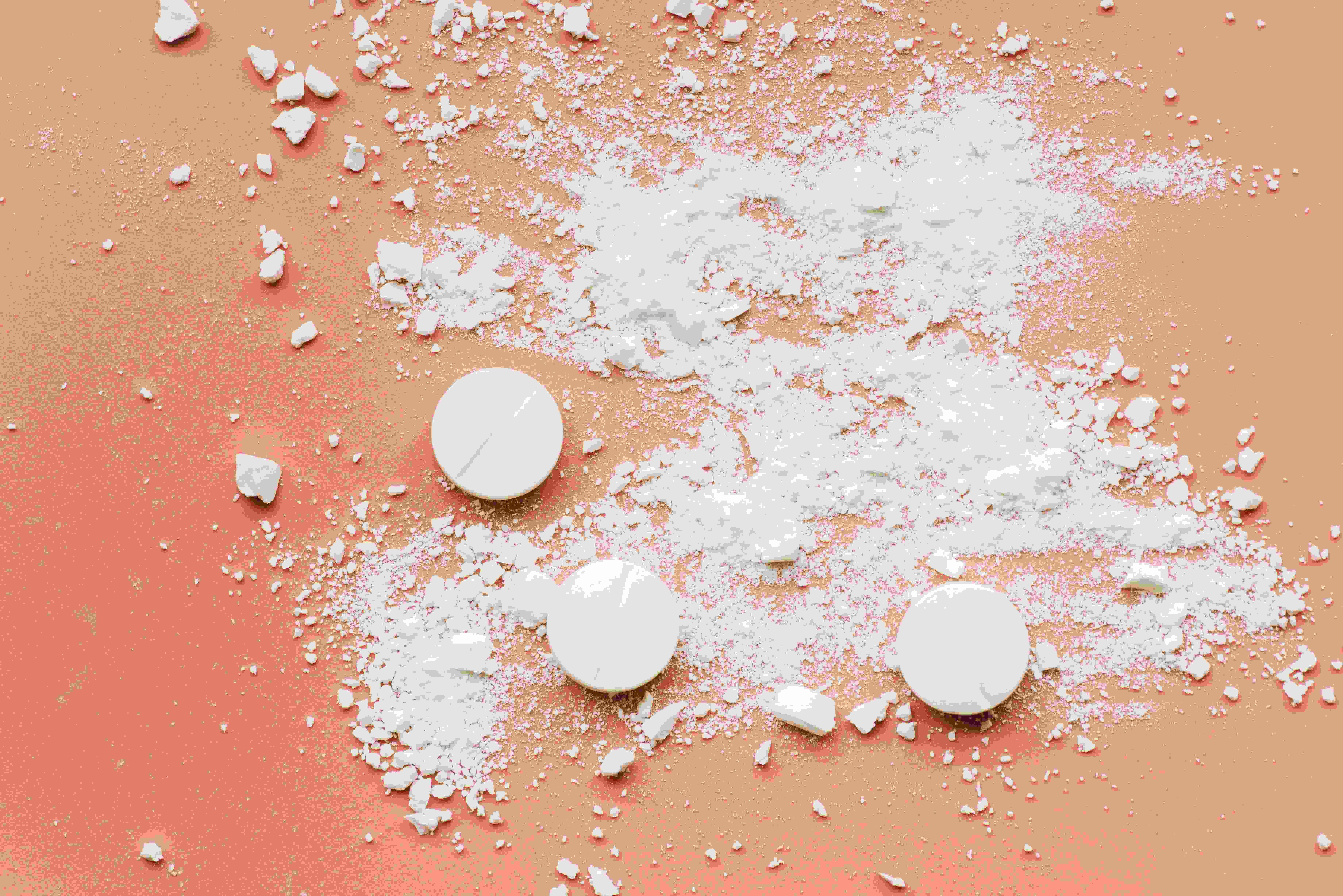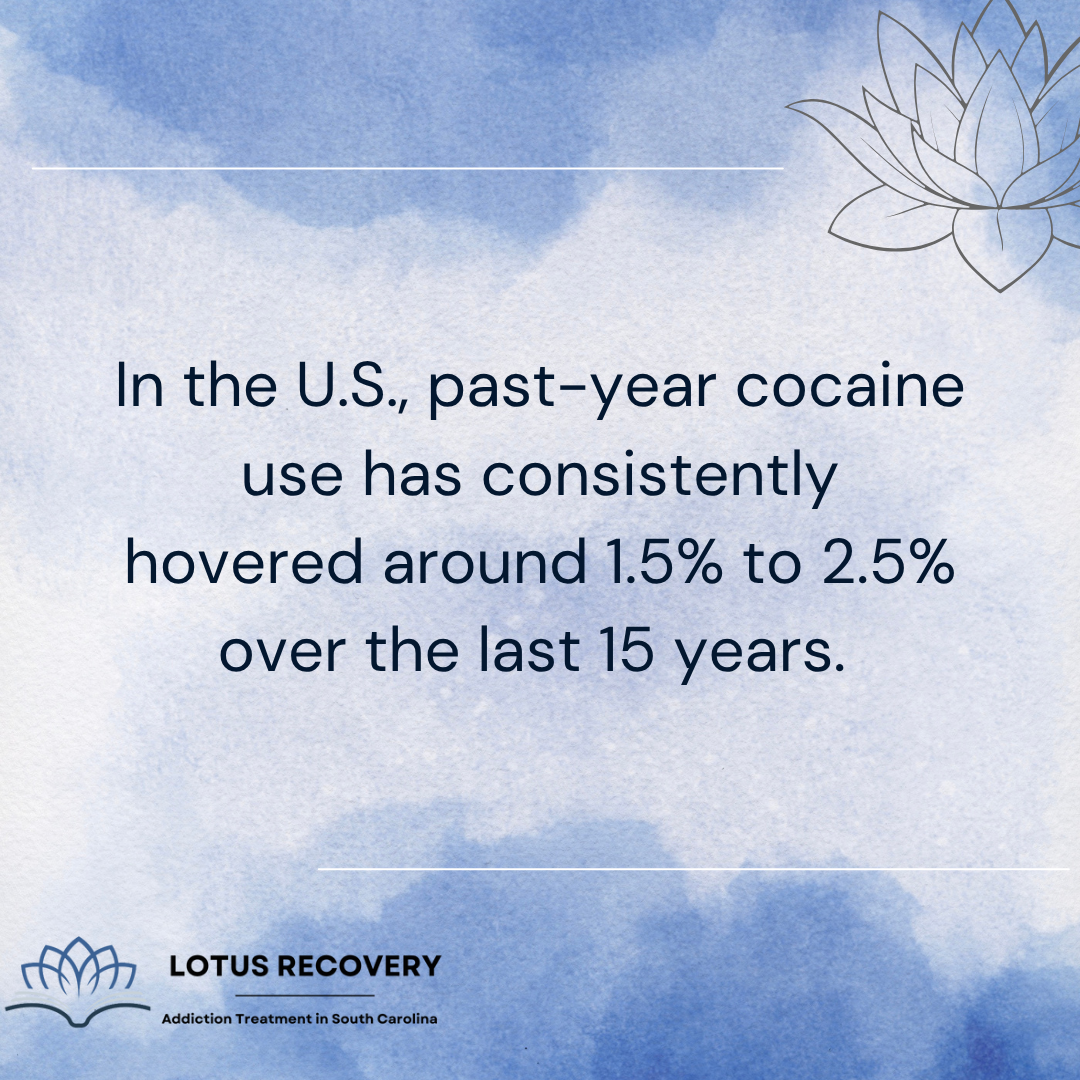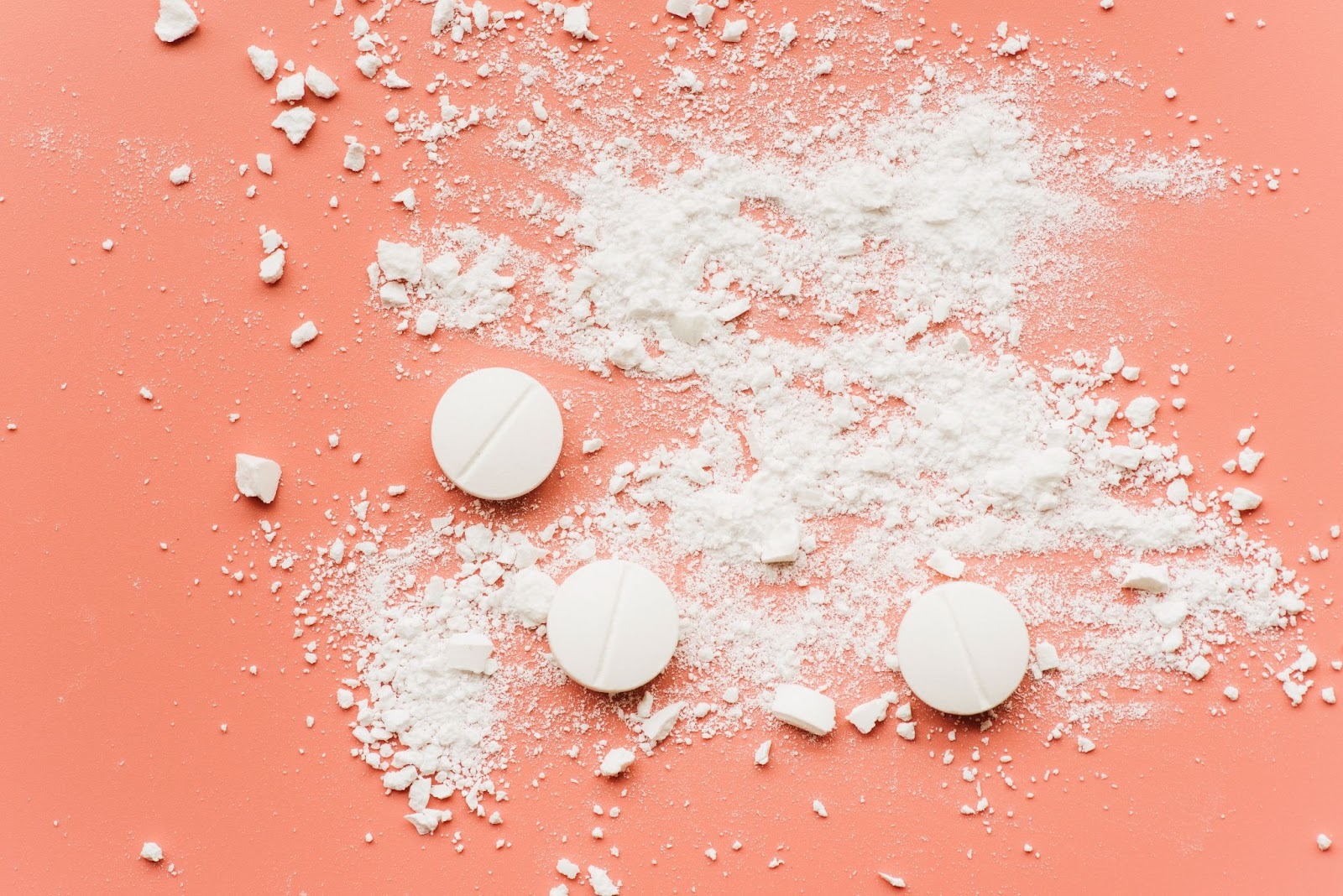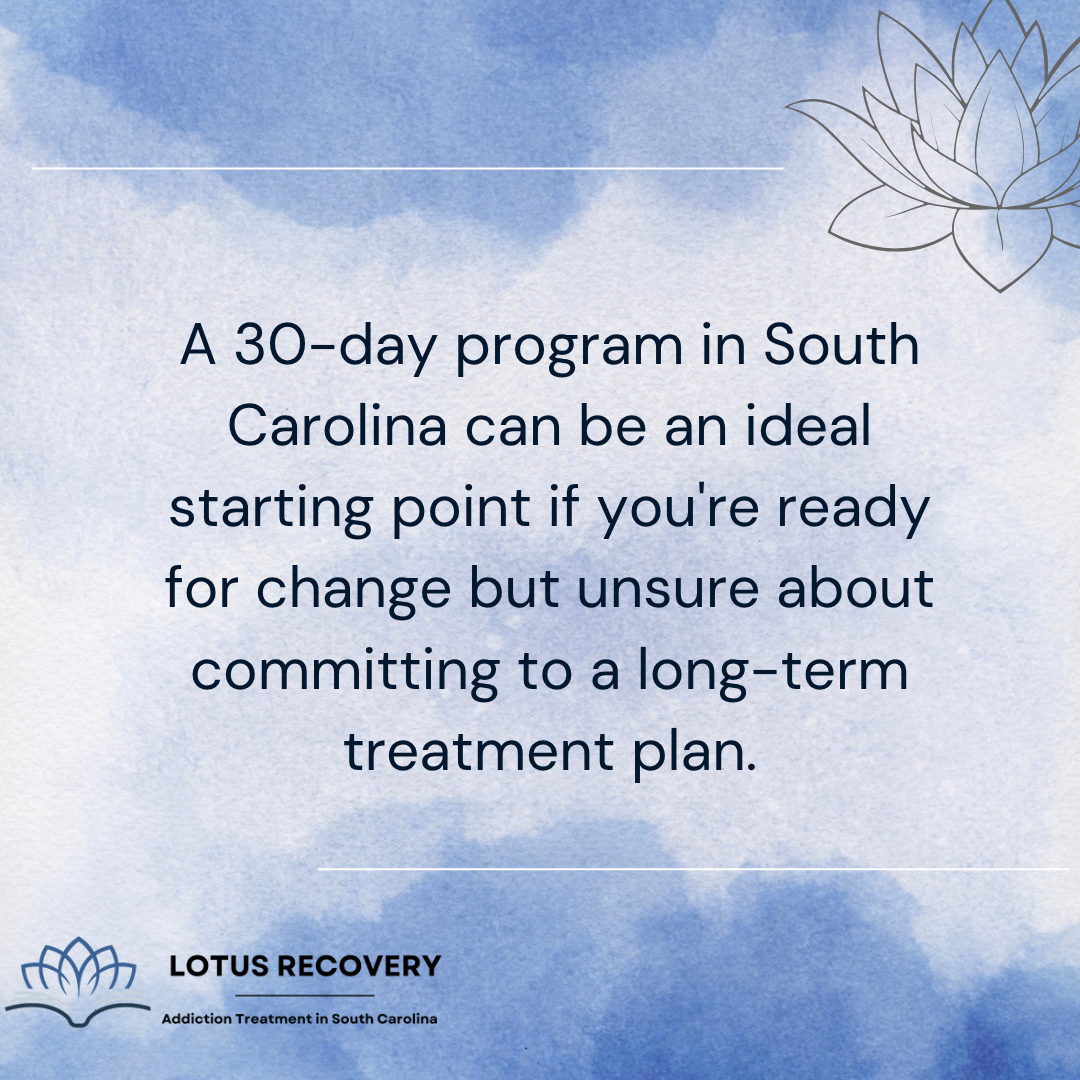
Explore how an addiction treatment center in South Carolina can help you quit cocaine addiction. Learn more about 30-day rehab programs and other options.
Like any other form of substance abuse, cocaine addiction can take over your life before you even realize what's happening. But while you might think that this substance has already taken the wheel and recovery is out of the picture, getting help isn’t as out of reach as it might feel. Case in point: getting in touch with an addiction treatment center in South Carolina.
In the state, such treatment centers are easily accessible, and they can help you rebuild your life with real structure, support, and expert care. This article breaks down what comprises an effective treatment plan and why a 30-day rehab program is often a crucial first step toward stable recovery.

In the U.S., past-year cocaine use has consistently hovered around 1.5% to 2.5% over the last 15 years. That steady figure underlines how widespread the challenge really is.
But why is cocaine so addictive? The answer lies in the way it taps into your brain’s natural reward system.
Your brain releases dopamine when you engage in activities that make you feel good (for example, eating or connecting with others). Cocaine hijacks that system by flooding the brain with dopamine and preventing it from being reabsorbed, which makes it both psychologically and neurochemically addictive.
Beyond its impact on the brain, it also has physical consequences.
Cocaine speeds up your heart rate, increases your blood pressure, and stresses your cardiovascular system. These effects build up: Heart attacks, strokes, and long-term brain damage become real risks if use continues.
To identify if you or someone you know has cocaine addiction, be wary of these signs:
Keep in mind that if you leave cocaine addiction untreated and don’t overcome your addiction, it will continue to wreak havoc on your health while also eroding relationships and job stability.

When you’re ready to get help, knowing what to expect from an addiction treatment center in South Carolina can guide you toward the right fit. Typically, effective treatment for cocaine addiction includes these core elements.
While cocaine withdrawal isn't usually life-threatening, it can cause intense fatigue, depression, anxiety, and cravings. A medically supervised detox helps you manage these symptoms safely.
Therapy is where change truly begins. One-on-one counseling helps you dig into personal triggers and trauma, while group sessions provide a sense of community and shared experience. Together, they help you replace harmful patterns with healthier ways of coping.
CBT is a cornerstone of addiction treatment. It helps you understand how your thoughts influence your behavior, and gives you tools to handle stress, cravings, and high-risk situations. Meanwhile, relapse prevention strategies help you stay on track long-term.
More than just quitting cocaine, recovery is all about rebuilding your whole life. That's why many treatment programs include holistic elements like mindfulness, exercise, nutrition, and creative therapies. These help restore balance, reduce stress, and give you positive outlets.
A 30-day program South Carolina can be an ideal starting point if you're ready for change but unsure about committing to a long-term treatment plan. These short-term programs are there to jumpstart your recovery by offering structure, support, and essential tools to help you build momentum toward a drug-free life.
One option you’ll find is a 30-Day Accelerated Program, which focuses on helping you break through the early challenges of recovery with a highly supportive environment.
Here, you’ll take part in both individual and group mentorship sessions, where you can share your experiences, gain insight, and start building a support network. In this setup, there will also be workshops focused on relapse prevention, emotional management, and coping skills help you develop practical strategies to handle cravings and triggers.
Many programs also incorporate family involvement to strengthen communication and rebuild trust at home. Throughout the month, you’ll have steady guidance from trained addiction specialists who monitor your progress and help you stay focused.
If you need flexibility, a 30-Day Commuters Program could be a better fit. It’s a format lets you continue living at home while still participating in structured recovery activities each day.
This program is ideal for people balancing responsibilities like work, school, or family. You’ll join daily group sessions to stay accountable, work through the Twelve Steps with support, and receive one-on-one mentorship tailored to your personal recovery goals. Weekly access to a psychiatrist also ensures your mental health is looked after during the process.
But whether you choose the accelerated or commuting route, a 30-day program can help you build a solid foundation in a manageable time frame.

Completing one of the 30 day rehab programs is a major achievement, but lasting recovery depends on what happens afterward. Long-term success is all about staying engaged, supported, and committed to the lifestyle changes you started during treatment. And it entails the following:
One of the most important aspects here is continuing care. This could mean returning for outpatient therapy, meeting with a counselor, or joining an alumni program through your treatment center. Many people also benefit from support groups like Narcotics Anonymous or Cocaine Anonymous, where they can connect with others who understand what they’re going through.
After learning what goes into effective treatment, it all comes down to where you decide to begin your recovery. Even with the best intentions, your progress can stall if the support system isn’t the right match. That’s why choosing the right South Carolina addiction treatment center is one of the most important decisions in your journey away from substance abuse.
Here’s what to look for in an addiction treatment center in South Carolina:

Cocaine addiction can be a heavy burden, but the path to recovery doesn’t have to feel impossible. With the right blend of medical support, meaningful therapy, and a steady network of people in your corner, real progress becomes possible.
That’s what an addiction treatment center in South Carolina is there for: structure when things feel chaotic, guidance when you're unsure of the next move, and support when you need it most. At Lotus Recovery, we offer 30-day programs among other approaches that focus on building momentum and giving you a solid base to move forward.
Ready for sustainable change? Explore our South Carolina addiction treatment options and contact us today!

Reviewer
Henna is a content strategist with over 5 years of experience in behavioral health marketing. She specializes in creating informed, compassionate content for addiction treatment centers, using her deep understanding of the industry to educate, engage, and support individuals seeking recovery.